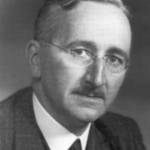
In a letter to Karl Popper dated October 21, 1964, Friedrich Hayek proposed that they name their philosophy “Negativism.”[1] Hayek’s philosophy of economics holds that the limits of knowledge doom any attempt at central planning,[2] and Popper’s philosophy of science holds that observations can only falsify hypotheses.[3] Hence, “Negativism” would capture the central epistemic insight of their joint approach, and that label would provide a strong contrast to the prevailing Positivism of their time.
On October 31, Popper replied to Hayek’s proposal (in the negative, naturally), in part on philosophical grounds and in part on marketing grounds:

“I decided years ago … not to use ‘negativism’ as a, so to speak official, label to our philosophy. Thus we agree in re but not in modo … only the sceptics will like it [negativism] and we are no sceptics, since we believe in the possibility of growth of knowledge. It is also really misleading. For the negations, important as they are to our philosophy, are important mainly because they are the means by which we get nearer and nearer to something very positive indeed: something like a regulative idea (or ideal) such as truth. False rationalism always tries to get at the ideals by direct intuition, the true rationalism by learning from our mistakes. … ‘Negativism’ for our philosophy would mislead people — and it would also repel those we would want to attract.”[4]
Sources:
[1] Jeremy Shearmur, Hayek and After: Hayekian Liberalism As a Research Programme (Routledge, 1996), note 66 in Chapter 3, “Hayek’s Later Thought.”
[2] E.g., Hayek: “If our conclusions on the merits of [planning] … are essentially negative, this is certainly no cause for satisfaction. … Nothing … could do more to relieve the unmitigated gloom with which the economist today must look at the future of the world than if it could be shown that there is a possible and practicable way to overcome [planning’s] difficulties.” (Individualism and the Economic Order, University of Chicago Press, 1948, p. 180)
[3] E.g., Popper: “My proposal is based upon an asymmetry between verifiability and falsifiability; an asymmetry which results from the logical form of universal statements. For these are never derivable from singular statements, but can be contradicted by singular statements.” (The Logic of Scientific Discovery, University of Toronto Press, 1959, p. 19.)
[4] Popper, Letter to Hayek, October 31, 1964. In Stefania Ruzsits Jha, Reconsidering Michael Polanyi’s Philosophy (University of Pittsburgh Press, 2002), note 165.
Related: Karl Popper in the Philosophers, Explained series.
It is most unfortunate that Popper’s work is almost universally (mis) understood under the label of “falsificationism” and it is also regrettable that there is something of a standoff between the followers of Popper and the Austrian school of economics. In fact there is a very interesting and powerful synergy between the best parts of Popper and the best part of the Austrians, which I have tried to explain in a collection of papers helpfully titled “Karl Popper and the Austrian School of Economics” in a series of (also) helpful ebooks. http://www.amazon.com/s/ref=nb_sb_noss_1?url=search-alias%3Daps&field-keywords=rafe+champion
Here’s a direct link to Rafe’s e-book on Popper and Austrian economics: http://www.amazon.com/Popper-Austrian-School-Economics-ebook/dp/B00E8HNZEE/
Thanks both of you for these. I need to get up to speed on Popper, having only read his Open Society. Popper’s right: Negativism would have been a hideous name.
On the Open Society, Popper’s social democrat tendencies modified later and he became more of a classical liberal, especially when Hazlitt gave him a lecture on economics. It is hard to know how much of the admiration that he professed for Marx was genuine and how much was strategic, to get a readership among Marxists. Anyway it did not work, he was blacklisted by conservatives and the left. People who are too busy to read the seven hundred pages of the Open Society can get the gist in 50 pages with my Guide (see links above).
Now I find that Parvin’s little book on Popper is available at a reasonable price on kindle. The original hardback price was obscene and I don’t recall a paperback version when it first appeared. http://www.amazon.com/Popper-Major-Conservative-Libertarian-Thinkers-ebook/dp/B00DY4CJFS/ref=pd_sim_sbs_kstore_7
This is a review of the book
http://www.the-rathouse.com/Pop-Schol/Parvin.html
And one more thing, a review of the definitive von Mises biography to acknoweldge his death 40 years ago, a year before the rebirth of the Austrian school at Royalton.
http://catallaxyfiles.com/2013/10/10/great-von-mises-biography/